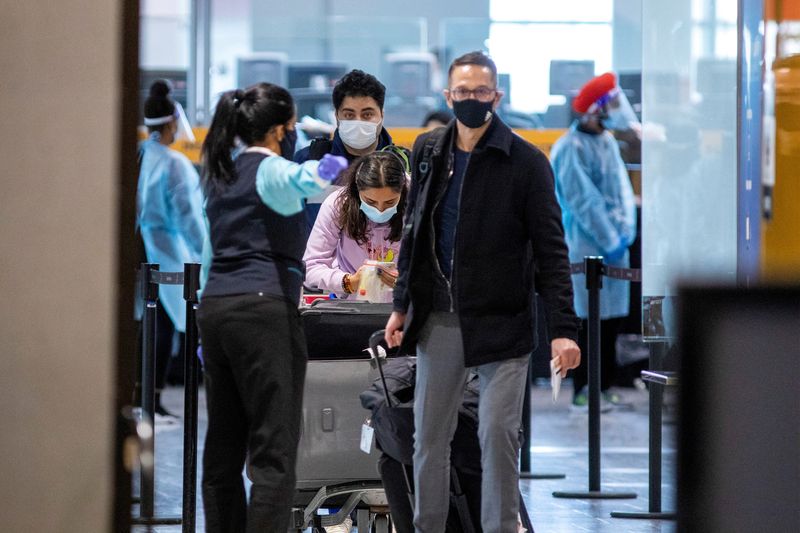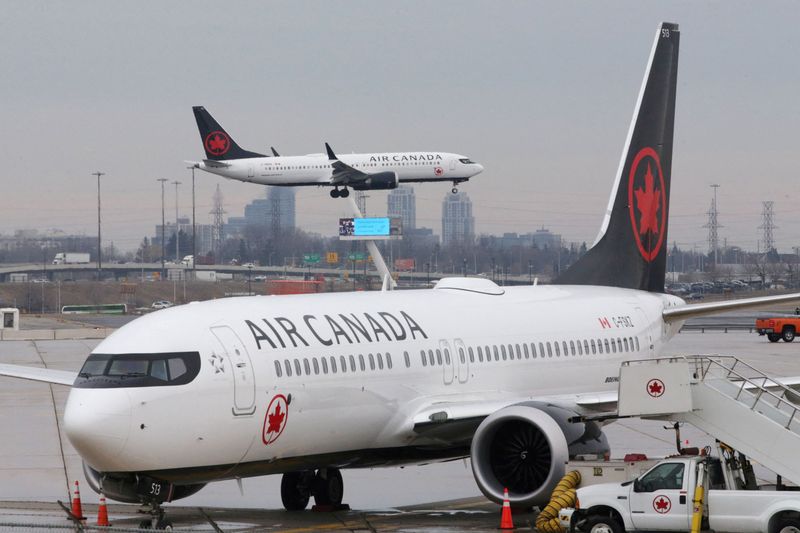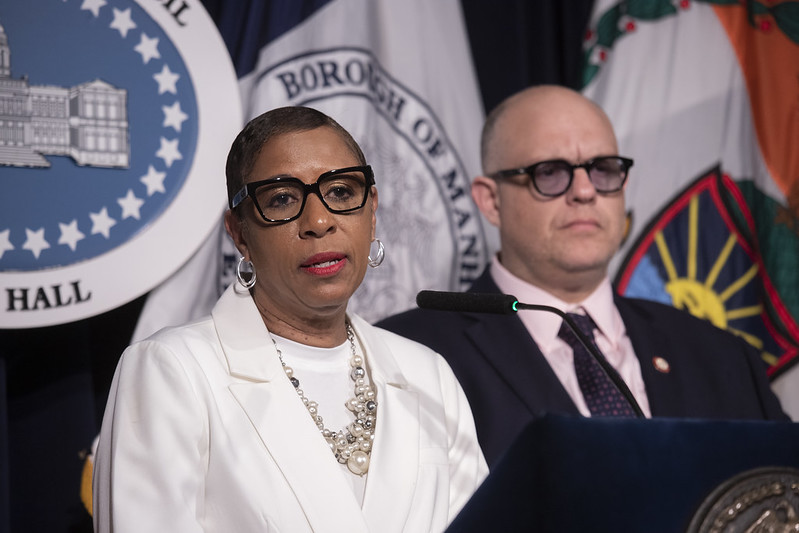MONTREAL (Reuters) – Canadian carriers are seeing a bounce in spring travel after a slump due to the spread of the Omicron coronavirus variant, with the country’s largest airport bracing for its busiest travel day since the onset of the pandemic this Friday.
But just as COVID-19 shows signs of ebbing, surging oil prices due to the Russian-Ukraine crisis and high regulatory costs are casting shadows ahead of the busy summer vacation season.
Canadian air traffic is recovering more slowly than in the United States due to tougher virus restrictions.
But after rules eased in February, flights to some sun destinations rebounded in March to levels similar to those seen before Omicron hit winter travel, data from airline data company Cirium suggest.
Toronto Pearson International Airport on Wednesday said it is expecting March 11 to be the busiest travel day since the start of the pandemic, with about 85,000 passengers set to arrive or depart ahead of spring break next week in the country’s most populous-province, Ontario.
The country’s two largest carriers, Air Canada and privately-held WestJet Airlines are recalling and hiring flight attendants, said Hugh Pouliot, a spokesman for the Canadian Union of Public Employees (CUPE) which represents them.
Westjet is “hiring like mad right now.”
“We have seen an uptick in demand for both short-term (spring break) and long-term travel,” said WestJet spokeswoman Denise Kenny.
Still, WestJet operates about 350 flights a day compared with more than 700 pre-pandemic, she noted.
“Even with this uptick we won’t recover to 2019 levels,” said Suzanne Acton-Gervais, interim president of the National Airlines Council of Canada (NACC), which represents the country’s largest carriers.
Both U.S. and Canadian airlines have called for an end to testing requirements by the two countries for international travellers as they face higher oil prices and other costs.
“What we’re hopeful is as the rules become less complex and more predictable people will feel comfortable traveling again,” said Acton-Gervais who wants Canada to end testing by April 1.
The price of oil, which has climbed steadily since late last year, is linked to capacity growth, said U.S. airline trade group Airlines for America in a presentation, as some of the country’s carriers cut less profitable routes.
Air Canada and U.S. legacy carriers have said they do not have current plans to hedge.
WestJet’s Kenny said other costs have risen during the pandemic with 24% of every C$100 spent on airfare in Canada going to regulatory fees.
Kenny said WestJet has not increased fares, or “made any deliberate change to our systems in response to the rising cost of fuel.”
Air Canada said airline pricing is based on different factors including competition and demand.
(Reporting By Allison Lampert in Montreal. Additional reporting by Nia Williams in Calgary and Rajesh Kumar Singh in Chicago; Editing by Kirsten Donovan)



















